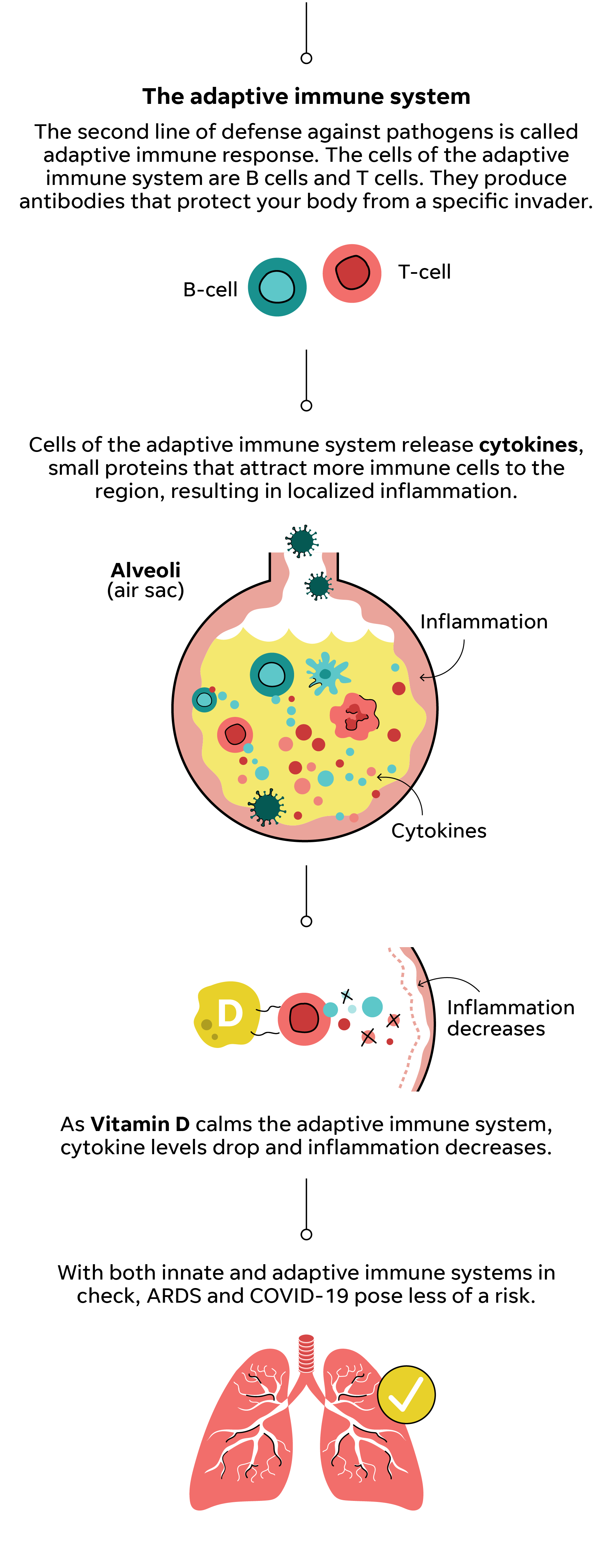This is the No. Its great for the immune system and it can help with the prevention of getting a cold or virus.
 Using Vitamins And Minerals To Fight Viruses And Support Immunity
Using Vitamins And Minerals To Fight Viruses And Support Immunity
Certain species have been shown to improve immune health and may have antiviral effects against several respiratory viruses including respiratory syncytial virus and rhinoviruses.

Best vitamin to fight viruses. Similar to vitamin C vitamin D is another example of one of the best vitamins for women especially when fighting against the common cold and other viruses. However caution should be administered while taking these supplements as an overdose can lead to dizziness headache bone pain and liver damage. Some of the best sources of Vitamin C.
Vitamin D helps fight off Respiratory Tract Infections. Use echinacea only when fighting an infection. Otherwise known as the sunshine vitamin your body makes Vitamin D when skin is directly exposed to the sun not sunshine through a window.
It also is a major anti-oxidant Arguinzioni-Gil says. Consume immunity-boosting vitamins To support your immune system you can eat immunity supporting foods like citrus fruits garlic broccoli and spinach. Although diet is the best and safest source of vitamin A synthetic supplements are also available at most pharmacies.
This page from the National Center for Biotechnology Information highlights many studies concludes that controlled studies have shown that vitamin C shortens and alleviates the common cold and prevents colds under specific conditions and in restricted population. Picture of vitamin C a supplement that can help protect against COVID-19. Vitamin C is a powerful antioxidant that helps the immune system make T-cells and B-cells and helps kill microbes.
Vitamin C in larger than physiological doses have been successfully used to treat a range of viral bacterial fungal and inflammatory conditions including colds flus mononucleosis herpes simplex infections and shingles. These can help the body fight infection without harmful side effects. Vitamin C is considered as one of the best immune system boosters.
Vitamin D in the market. 1 cold and flu fighter. A study found that having high levels of Vitamin C before getting exposed to a flu virus made mice produce extra interferons.
In a 2019 analysis of 25 randomized controlled trials involving more than 11000 patients vitamin D supplements significantly reduced respiratory infections in people deficient in the vitamin and lowered the risk in those with normal levels. Like vitamin C vitamin D has been proven to reduce the duration of the flu and other chronic viral infections says Dr. If your immune system is already weak it can also be helpful to supplement with key vitamins and minerals that may have become depleted like Vitamin C Vitamin B Vitamin D and Zinc.
They can also upset the healthy bacterial balance of the digestive tract. If you want to stay resilient against infection adding a few immune support products such as Vitamin C Vitamin D Quercetin GlutathioneNAC Zinc and Melatonin could help. For example take 1000 mg dose three times throughout the day as opposed to.
Vitamins That Fight Infections. Thu May 13 2021. It plays different roles from helping the body absorb calcium for strong bones to helping the immune system fight off invading bacteria and viruses.
Salmon sardines egg yolks mushrooms and fortified foods. There have been some studies on COVID where vitamin C has shown to have very good benefits in the outcome of an illness. The recent COVID-19 coronavirus outbreak causes a variety of telltale signs and symptoms ranging from fever and dry cough to more extreme symptoms requiring immediate medical help such as.
Zinc stops viral replication multiple ways so it prevents the virus from hijacking your DNA prevents the virus from replicating. Vitamin D commonly known for its role in bone health also helps make proteins that kill viruses and bacteria especially in the respiratory tract. Vitamin B-12 Vitamin B-12 is a component of vitamin B-complex that is important for metabolism.
While the potential anti-viral effect of vitamin D has recently been described the underlying mechanisms by which vitamin D deficiency could contribute to viral disease development remain poorly understood. Vitamin D is available in in two forms Vitamin D2 which is derived from plants and fungi and Vitamin D3 which are. It aids cellular functions that are needed by the immune system.
Try an herbal preparation such as garlic or echinacea. The Unsung Immune System Defender You often hear doctors advise people to get a healthy amount of sunlight as one of their daily dose of Vitamin D. It also prevents the virus from entering the cell so zinc is very important right now.
1 Interferons are proteins the. Be sure to spread your vitamin C dose throughout the day as it is water-soluble and we urinate it out of our system quite quickly. When considering how to fight viruses interest in the effects of vitamin C on the common cold has been around for decades.
Vitamin D is essential to everyone due to its numerous functional benefits as it helps maintain bone mineral density enhances mineral absorption and more. Charles Passler creator of Pure Change and nutritionist to the likes of Bella Hadid Sara Sampaio and more. Otherwise it can lose its.
The possible interactions between viral infections and vitamin D appear to be more complex than previously thought. Benefits were greatest when people took vitamin D. Vitamin C boosts production of interferon a potent anti-viral and immune enhancing substance.


